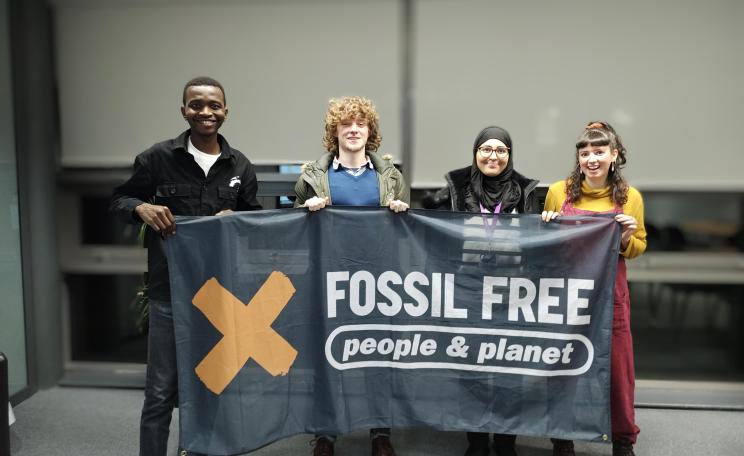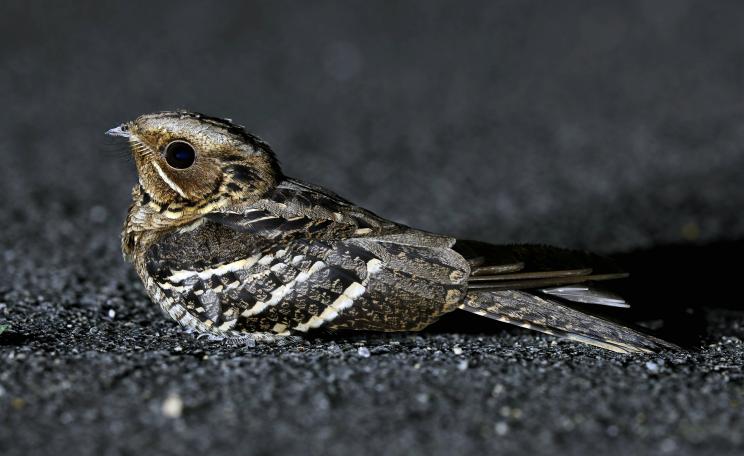A couple of years ago, King's College became the first London University to go Fairtrade. Back in my student days, I'd go to Terrazza Café in the student union between lectures with my friends and sip Fairtrade coffee and eat Fairtrade muffins.
But beyond this feel-good factor of helping poor producers in developing countries, most students were not involved in social-justice societies. However, there is a plethora of things you can do at university to make some kind of difference, and one of them is setting up and/or joining an environmental society or campaigning group.
In my fourth year at university, I decided to try my hand at running such a society. Having seen the gradual strengthening of an environmental conscience in student life and in movements spanning universities nationwide, I saw that there was an opportunity to tap into a large and motivated group of people. Additionally, the environmental sector has never been great at communicating with possible future employees, so why not bring the talent to the employer?
Once I had founded the KCL Wildlife Conservation Society, however, I soon found out that students aren't as motivated as I first thought! I learned that often it is the personalities in your committee that will keep the society afloat. Incredibly small at first, it has survived into its second year, grown in members and become known to other societies and campaign groups throughout London. It's still a very modest group with modest aims but all good things have to start somewhere.
If you're interested in starting something, here's a short list of tips learnt from personal experience to help you on your way...
1. Pick your committee
Our society was a two-man band. My best friend and I were Treasurer and President respectively. Usually, this is a good thing because it means that you both know each other well. It also means that when you're first starting you basically share each other's tasks. However, beware: choose a committee very carefully and keep it as small and select as possible.
2. Choose a remit
Many universities already have geography societies but few have environmental ones. The best thing to do is stand out as unique from other societies - focus upon current issues of concern such as renewable energy and climate change and keep the focus of the society fresh and contemporary. Additionally, keep it interesting for yourselves as a committee, as the more fun you're having, the less like work it'll be.
3. Spread the Word
Advertise on Facebook, Twitter, MySpace, in university magazines, anywhere you can think of. Plaster posters around the university, send e-mails to academic departments and get them to pass it on to their entire student base. Get the student unions to do the same.
4. Liaise...
...with other societies, and societies in other universities. It doesn't matter if they're not strictly environmental in focus. What is important is that you collaborate with other forces in university student life, allowing you to pool your resources - useful for organising nights and days out.
5. Don't get preachy
Shoving messages down their throats and guilt-tripping people will put any prospective members off! With the exception of a core group of die-hards, the majority of your followers represent the public at large and will have only a passing, casual interest in the environment. Your aim is to change this by getting them thinking about their own actions, but only gradually.
6. Make it fun
Do cool stuff. Arrange environmentally-focused days out, visits to the parks, exhibitions and wildlife centres, but also just go clubbing, pubbing and have movie nights. The camaraderie in your group will keep what will be initially a small society trundling along and conversations borne of growing familiarity will get people talking about the environment.
7. Make it worthwhile
Most people won't take time out of their lives to do something if it isn't going to be useful to them. For no section of society is this more true than students. When big enough, organise lectures and events that are slanted towards the interests of your members and most importantly - it cannot be stressed enough - hold careers events! Our environmental journalism lecture was one of the most successful things we did. It gets prospective employers interested and students will want to get insider advice and make crucial contacts for future use.
8. Contacts
Keep a very wide range of contacts in as many areas of the environmental sector as possible. This ranges from zoological societies and research centres to environmental magazines and campaign groups. An eclectic mix of influences and focuses will ensure that you keep the society interesting and well-connected.
9. There is a point
Your society is not just a drinking club. Don't get too heavy, but don't get lazy either. Set an example, be active and make sure your members get news of campaigns, workshops etc. Even your fun nights can be environmentally themed.
10. Size doesn't matter...that much
You'll get people turning up to the first event and then disappearing forever. It's OK; remember you want people who actually have an interest. The larger the society, the more chance you'll have a horde of hangers on who are only interested in free drinks. If you hook only one person up with a useful contact, then you've already made a small difference.
11. Patience
Don't get disillusioned and abandon the idea. Your first term, maybe even year, could be slow depending on your university. If it specialises in environmental studies, you may not have much of a problem, but if not you will be a small society for a short while. This doesn't matter, as long as there are enough of you to keep it alive and as long as you make enough effort to be noticed by people inside and outside the university.
Your purpose as founder of the society is to establish it, keep it going and then pass the baton to a new committee and hopefully watch it grow. From then on, it's out of your hands, so if it fails, it fails. Though frustrating, at least you've tried!
A society is only as good as the students it is trying to appeal to, so maybe it won't work. But don't go into it with expectations that are too low and if you don't try, you'll never know whether you could have made a success of it.
| READ MORE... | |
 |
HOW TO MAKE A DIFFERENCE How green is your university? From ‘First’ to ‘Failed’, student activist group People & Planet has created a new way of ranking the UK’s universities – according to their environmental credentials. |
 |
HOW TO MAKE A DIFFERENCE Banning bottled water in universities Leeds University is the first in the UK to ban the sale of bottled water on campus. Will other universities follow suit? Sophie Haydock reports |
 |
HOW TO MAKE A DIFFERENCE 10 groups campaigning for the natural world Breathable air, healthy soil, fresh water and the stability of our climate all rely on our planetary life-support systems – like rainforests and oceans – being healthy. |
 |
HOW TO MAKE A DIFFERENCE 10 resources for tackling climate change They're two of the most important issues of our time. These resources will give you the science, some solutions and a good dose of inspiration to act now |
 |
HOW TO MAKE A DIFFERENCE A school built for green education The newly opened Langley science academy in Slough ticks just about every box - airy, light, modern interiors make for good learning environments, and the school building is stuffed full of eco features |






